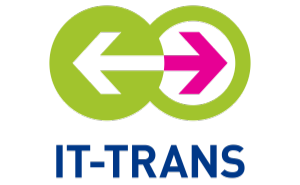AI meets sharing: Enhanced routing for the last mile becomes reality
Mobility apps: Intelligent availability forecasts for bike sharing
Thanks to intelligent forecasting technology, mobility apps can now proactively include sharing services in route planning – making transfers significantly more reliable. Learn more about the DAKIMO project.
Bike sharing has long been an integral part of many urban mobility concepts. It complements public transport in a cost-effective, flexible, and environmentally friendly way. Particularly on the last mile, shared bikes create a real alternative to private cars. Systems that seamlessly integrate into public transport services or Mobility-as-a-Service (MaaS) platforms operate particularly successfully. An important success factor: reliable information about availability. Ideally not just in real-time, but also predictively.
GBFS: The data standard evolves
An extension of the GBFS (General Bikeshare Feed Specification) data standard within the DAKIMO research project now takes this concept to a new level. GBFS forms the technical foundation for many bike sharing integrations. The open standard provides information about available vehicles, stations, and locations.
Under the leadership of Fraunhofer IOSB, DAKIMO developed an AI solution that predicts bike availability. The forecast model uses open data sources and considers location, time of day, and day of the week. It can also incorporate weather and other traffic patterns. The result: a precise picture of where and when users are likely to find a bike. This data feeds into a mobility app and improves intermodal routing.
Better transitions through predictive routing
Users can now plan trips in the app where seamless transitions, for example between tram, bus, and shared bikes, are more realistically achieved. The app only includes transfers in its recommendations where the AI calculates a high probability of available vehicles. This improves the reliability of intermodal routes. An important contribution to the everyday usability of digital mobility services – and to an environmentally friendly mobility chain.
A user acceptance study by KIT and raumobil showed that the new feature is well received and delivers clear added value to many users.
DAKIMO: Connecting research, practice, and urban transport
In the DAKIMO project (Data and AI-based Mobility Management), led by Fraunhofer IOSB, raumobil GmbH, INIT GmbH, INOVAPLAN GmbH, the Institute for Transport Studies at the Karlsruhe Institute of Technology (KIT), and the Karlsruhe Transport Association (KVV) work together on new solutions for urban transport. The project team develops AI models that analyze traffic flows, predict demand, and provide decision support for transport planners. The goal is mobility that functions efficiently, sustainably, and user-oriented. DAKIMO is funded by the Federal Ministry of Research, Technology and Space and is supervised by the project management agency Projektträger Karlsruhe.
New GBFS version brings AI into the standard
To make sharing data usable predictively, raumobil GmbH advocated for an extension of the GBFS standard within the project framework. The GBFS community accepted the proposal in March 2025 at MobilityData. Since release 3.1 in May 2025, predicted availability of shared bikes can now be implemented. This extension creates the prerequisite for integrating the AI forecast developed in the DAKIMO project directly into standard routing solutions. Regular rollout in the KVV “regiomove” app is already being planned.
Outlook: From prototype to broad application
Research and practice are becoming increasingly interconnected. The ability to integrate AI forecasts into mobility apps marks an important milestone on the path to smart, human-centered mobility. KIT and raumobil are currently analyzing user acceptance to derive action recommendations for further implementation. The goal remains clear: cities and people should equally benefit from data-based, networked mobility – without breaks, without detours.
The DAKIMO project and its project partners raumobil GmbH, INIT GmbH, INOVAPLAN GmbH, the Institute of Transport at the Karlsruhe Institute of Technology (KIT), the Karlsruhe Transport Authority (KVV) and Fraunhofer IOSB are part of KAMO: Karlsruhe Mobility Ecosystem.
